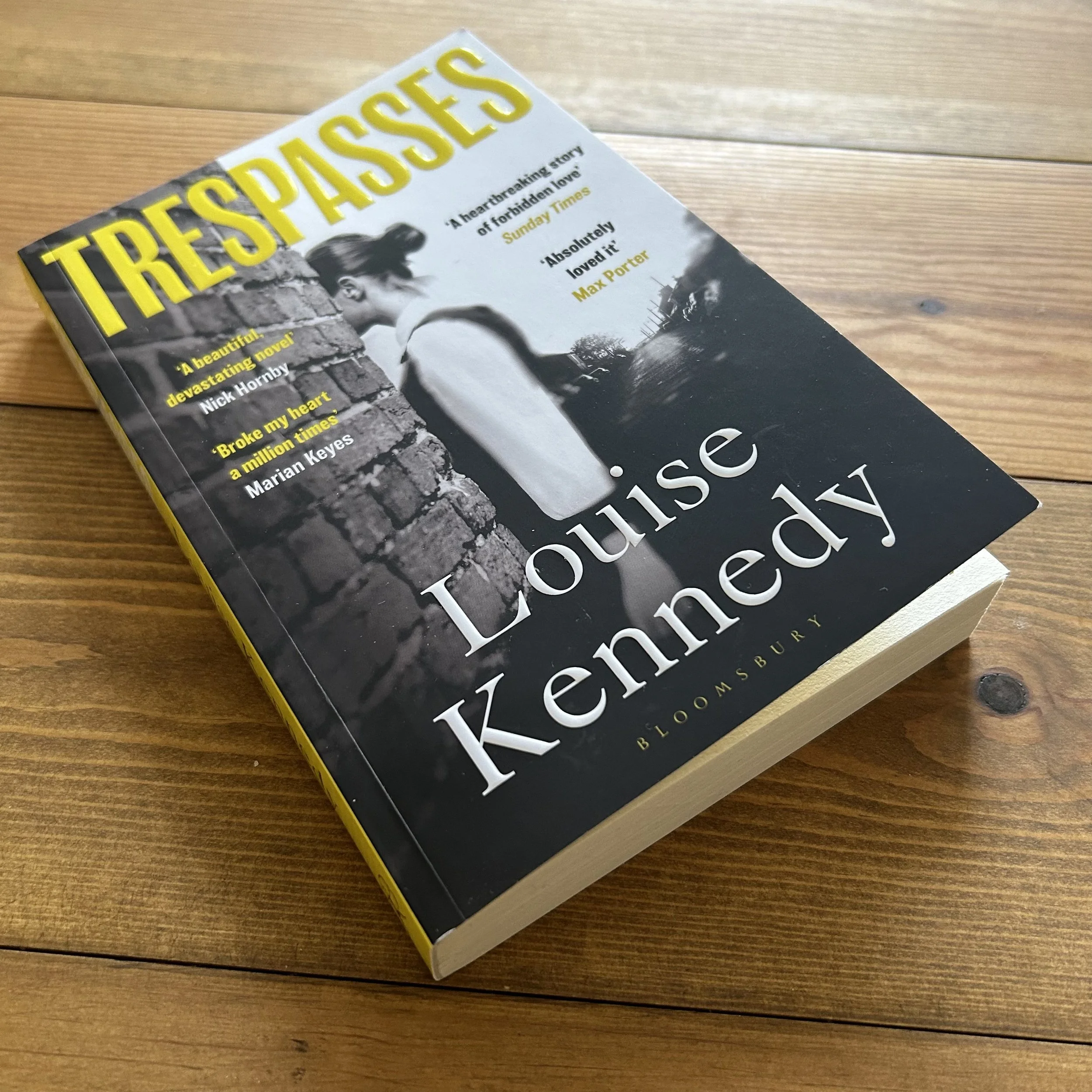Trespasses (2023)
Why this one?
I had been checking out some books from the 2023 Women’s Prize Longlist, and am now reading through those that I haven’t covered that are on the Shortlist. This is my penultimate read from the latter.
Trespasses is written by Louise Kennedy (c. 1967- ; active 2014- ) born in Belfast, Northern Ireland. She grew up at the height of the Troubles and her grandfather's pub suffered two bombing attempts, after which the family moved to Ireland, where she still lives. Coming to writing relatively late in life, she worked as a chef for almost three decades before taking on a part time PhD in creative writing from Queen's, Belfast. Her first collection of stories, The End of the World is a Cul de Sac was published in 2019, and she was shortlisted for the Sunday Times Audible Short Story Award in both 2019 and 2020. This is her debut novel, written rapidly following a cancer diagnosis - now in remission.
Thoughts, etc.
Trespasses tells the story of Cushla Lavery, a 24-year-old primary school teacher living on the outskirts of Belfast in 1975. She works occasional shifts in her family’s pub, managed by her brother and often stepping in for her alcoholic mother Gina. The violence and terror of Troubles-era Northern Ireland is a constant backdrop, and forms the basis of her young pupils’ life experience and their everyday vocabulary. Cushla’s town is relatively mixed compared to some more religiously segregated areas, and while her family are Catholic, their bar is frequently by a friendly mix of Catholic and Protestant drinkers, who by and large rub along well together. It’s at the bar that she meets the much older Protestant barrister Michael Agnew, with whom she begins a secret affair. In parallel, she begins to provide additional care to one of her young pupils, Davy McKeown, whose father has been maimed in an attack. Those two dominant strands of her life eventually intertwine with catastrophic consequences.
Although this isn’t an unusually short novel, it has that real sense of formal unity and narrative completeness that you often get from a great short story writer. It’s bookended by two brief moments in an art gallery in 2015 which could form a complete short in themselves. What’s in between is a masterful exercise in filling in the blanks. There’s no showiness to Trespasses - it’s main body is written in lucid, linear prose without stylistic flourishes. The storytelling feels classic, and the evocation of the time period it covers absolutely spot on. In many senses it feels like a novel that could have come from a 1970s Booker shortlist, albeit with the added benefit that hindsight gives to the analysis of a complex and always-developing period in time.
It was, as a result of some of the above, for me a book that made a lot more sense in retrospect than it necessarily did in the reading. While I enjoyed the quality of Kennedy’s prose and the detail that went into evoking another time so brilliantly, it wasn’t always obvious where it was going and I wasn’t engrossed by the central affair, aspects of which felt overly familiar. What I did enjoy most at the time were those little details: particularly the dark comedy of manners that unfolds as Cushla finds herself among Michael’s wealthy, self-absorbed and generally awful group of friends and associates, and also some of the classroom moments, often beginning with seven year olds reeling off lists of the violent events they’ve heard about on the day’s news.
Its denouement is powerful, bringing together the novel’s threads in a way that feels slightly unexpected but at the same time tragically (in the formal sense) inevitable. It also deftly ensures that the novel’s message is far deeper (and perhaps darker) than a simple exploration of the perils of a Catholic/Protestant relationship. You’re left with the sense of the random hand of fate, guided by the overarching tragedy of the Troubles, impacting on anyone and everyone, no matter what their intent.
Score
8.5
A book with a real feel of quality about it, and that almost begs you to re-read it. Not, for me, the most distinctive book on the shortlist but one that you could still easily imagine capturing the imagination of a prize jury.
Next up
My final book on this year’s Women’s Prize shortlist is Pod by Laline Paull - one I’ve been dodging as it doesn’t seem like my cup of tea, but let’s see!


